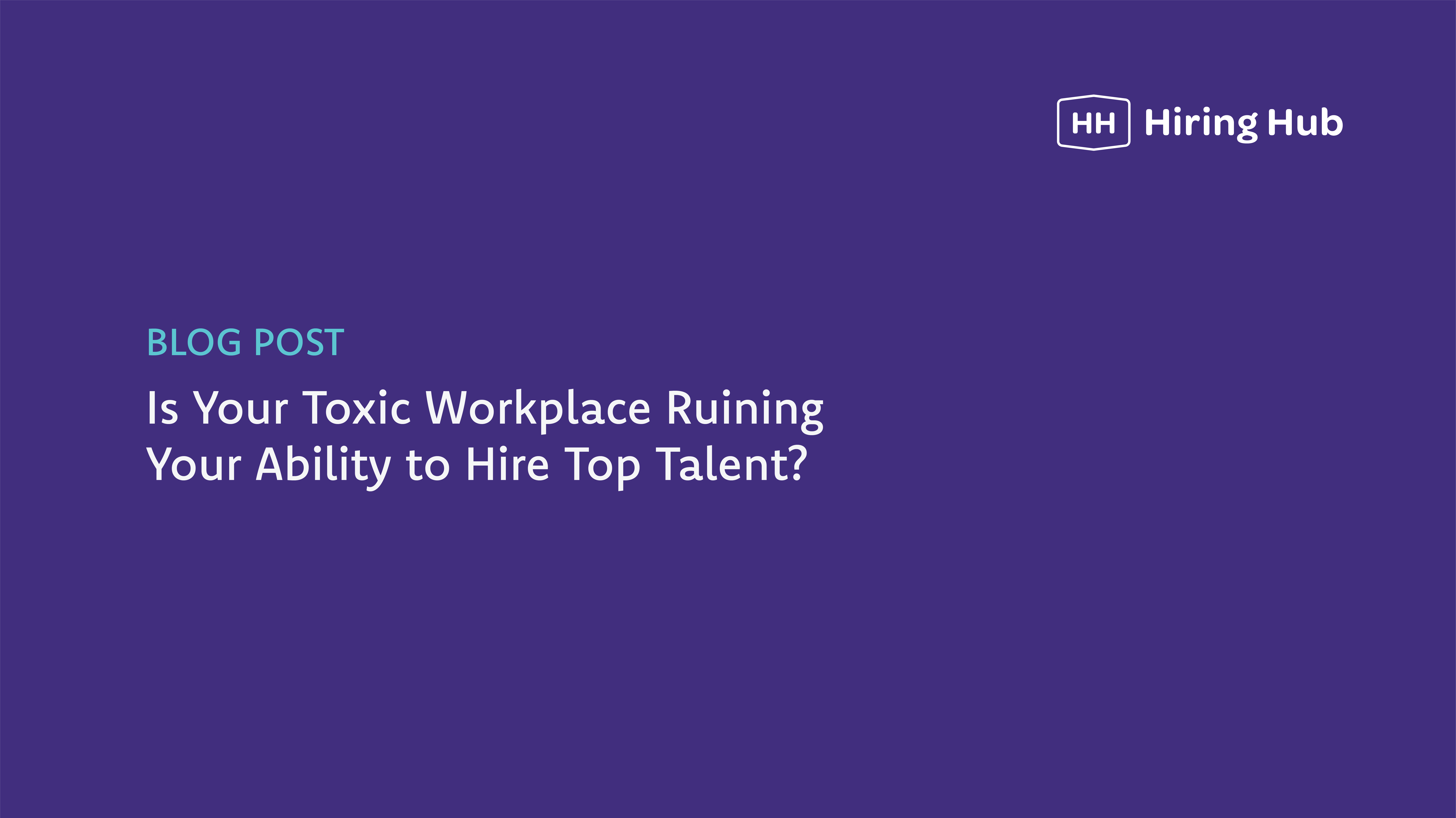You Snooze. You Lose: Speed Up Recruitment Or Lose The Best Candidates
Recruitment can be a slow process for all parties. From initially profiling the role, to writing a job description, advertising the vacancy, engaging...
7 min read
Hannah Simons 10/09/25 09:17
You’ve found the perfect role, spent far too long tinkering with your CV to make it look vaguely relevant, and just as you’re about to hit “Submit” you notice the box: “Upload cover letter (Optional).” Cue the internal debate. Do you bother, or skip it and hope no one notices?
You’ve found the perfect role, spent far too long tinkering with your CV to make it look vaguely relevant, and just as you’re about to hit “Submit” you notice the box: “Upload cover letter (Optional).” Cue the internal debate. Do you bother, or skip it and hope no one notices?
Traditionally, a cover letter was just that - a “cover note” tucked on top of a paper CV, sent through the post. It was a short introduction, a polite preface to whatever you’d listed on the next few pages. But is there still a need for a digital cover letter, when job applications are filtered through software, and recruiters lean on AI to shortlist profiles at speed? Doesn’t the humble cover letter feel like an awkward hangover from another era?
This article discusses cover letters in more detail, proving that they’re still relevant. We also include data-backed insights from recruiting professionals, and a handy list of dos and don’ts to help you craft the perfect accompaniment to your next job application.
Right off the bat, we’re here to tell you that cover letters are still very much part and parcel of the recruitment process. In a survey of 753 recruitment professionals, 89% said they expect a cover letter from job applicants; 83% will read it, and 81% have rejected a candidate solely on their cover letter.
Evaluation Specialist Anne Worthington, believes that the right cover letter can be a powerful differentiating factor in a crowded market. She describes a recent hiring cycle with 80+ qualified applicants where more than the top ten candidates possessed both the nice-to-haves plus the essential industry-specific experience. In her words, “Tailoring the cover letter to pull out even one project that directly aligned with the type of work we do really caught our eyes and pulled the applicant to the top of the list.”
Needless to say, applicants that don’t include a cover letter, or don’t put effort into the finished version are missing a serious opportunity to showcase their worth.
Writing a great cover letter isn’t necessarily straightforward. It takes art and science to create copy that’s well-structured and creative. Hiring Hub’s CEO Mark Rothwell describes:
“Cover letters need to work harder than ever. Think of them as your chance to bring your CV to life, to explain why you’re interested in the role and how you’d contribute.”
With that in mind, here are 10 clear do’s and don’ts to make your cover letter stand out for all the right reasons.
1. Do: Reveal your personality
A CV is facts and dates, whereas your cover letter is a chance to sound human. Recruiters want to see a bit of the person behind the skills, whether through the way you write, the examples you choose, or even the format. In fact, 45% of hiring managers say they’re open to alternatives such as video or infographic-style cover letters. That doesn’t mean you need to go gimmicky, but it does mean you should let your individuality shine through. A cover letter that feels genuine is far more likely to stick than one that reads like it was churned out of a template.
Example: Instead of writing, “I have excellent communication skills,” you might say, “In my last role, I was asked to present our monthly results to the board — a task that terrified me at first, but I ended up enjoying it so much I now mentor colleagues on presentation skills.”
Generic cover letters are easy to spot and even easier to ignore. The quickest way to stand out is by showing you’ve done your homework. Mention something specific about the company that excites you — a recent campaign, a product you admire, or a value you genuinely share. Recruiters want to know you’re not just looking for any job, but this job, at their company.
Example: Instead of writing, “I’m excited to apply for the Marketing Manager role at your organisation,” you could say, “I was impressed by your recent sustainability campaign — the way you engaged local schools and businesses really resonated with me. I’d love to bring my experience leading community partnerships to help grow initiatives like this further.”
If you’ve got a genuine link to the business, such as a referral or a former colleague on the team, now’s the time to mention it. It shows you’re not coming in cold, and it adds credibility to your application. In fact, almost 1 in 5 recruiters expect candidates to highlight a referral or personal link in their cover letter, according to Zety.
Example: Instead of writing, “I came across your job advert online,” you could say, “After speaking with my former colleague Sarah Patel in your product team about her experience at [Company], I was inspired to apply. She spoke highly of the collaborative culture, which is exactly the kind of environment where I know I do my best work.”
It’s one thing to say you “delivered results” but quite another to prove it. Recruiters love concrete outcomes because they make your achievements tangible and easier to compare. Wherever possible, attach numbers to what you’ve done: revenue growth, time saved, costs reduced, engagement increased. Even rough figures are better than vague claims.
Example: Instead of writing, “I helped improve the company’s social media presence,” you could say, “I grew our Instagram following by 42% in six months and doubled average post engagement by introducing a new content calendar.”
AI tools can be useful for sharpening your cover letter, but they shouldn’t be doing the heavy lifting. Recruiters are quick to spot a letter that sounds generic or soulless, and nothing kills impact faster than something that reads like it was churned out by a bot. Use AI to tidy up grammar, smooth out tone, or brainstorm phrasing, not to generate your entire application. According to MyPerfectResume, 32% of candidates admit to using AI tools on their cover letters, with most using them to polish grammar (16%) or rewrite small sections (10%). Far fewer rely on them to write the whole thing (5%).
Example: Instead of pasting in a prompt like “Write me a cover letter for a sales manager job” and sending whatever comes out, draft your own letter first and then run it through AI to spot clunky sentences or suggest stronger verbs. That way, the voice and ideas are yours, while the polish is just the assist.
No recruiter has the time or patience to wade through an essay of a letter. Hiring Hub’s CEO Mark Rothwell advises: “Keep it concise, authentic and focused on value.”
The sweet spot is around 250-400 words, which is roughly three to six paragraphs on a single page. Recent search shows that the median cover letter comes in at just 224 words, while the top 25% of the longest ones drag on past 394 words.
Example: Instead of submitting a two-page life story that walks through every role you’ve ever had, focus on one or two achievements that align directly with the role you’re applying for. Think quality over quantity - a few strong, relevant points will land far better than a rambling backstory.
Recruiters aren’t swayed by declarations of passion; they’re looking for evidence that you can deliver. According to Zety, most hiring managers place more weight on experience and proven impact than why you want the role. As Careers Advisory Specialist Hayley Davies puts it: “If your cover letter starts with “I am passionate about…” So does everyone else’s. Employers don’t trust passion on the page. They want proof.”
Example: Rather than writing, “I’m passionate about marketing and excited to apply for this role,” you could say, “In my current role, I launched a campaign that increased customer retention by 18%, and I’m excited to bring that same results-focused approach to [Company].”
Few things switch recruiters off faster than a cover letter that looks like it’s been copied and pasted a hundred times. Zoe Price business owner of Resume Pilots, gives an honest take:
“If your cover letter sounds like it was vomited out of a template... you’re doing it wrong.”
The classic opener, “Dear Sir or Madam,” is usually a dead giveaway, and often the end of the read. It feels lazy and signals a lack of genuine interest in the role or company.
Take the time to address your letter to a real person, reference something specific about the company, and tailor your examples to the role. It’s the difference between blending in and standing out.
Example: Instead of, “I am writing to apply for the position at your esteemed company,” you could write, “I’m excited to apply for the Project Manager role at [Company]. Having followed your recent expansion into the renewable energy sector, I’d love to contribute my experience delivering sustainability-focused projects.”
If your cover letter is a rehash of your CV, you’re wasting the opportunity. Recruiters already have your work history in bullet-point form, so they don’t need to read it twice. Instead, use the cover letter to add depth and colour. Share the story behind the bullet points: what you learned, how you solved problems, or why a particular project matters in the context of the role you’re applying for.
Example: Instead of repeating, “Managed a team of five to deliver client projects,” you could say, “Leading a team of five consultants taught me how to adapt quickly to client needs — one project required us to pivot mid-way, and we still delivered on time and 10% under budget.”
It can be tempting to exaggerate your achievements or stretch the truth in a cover letter, but recruiters will usually sniff it out fast. Background checks, references, and even a quick chat in an interview can unravel any fibs, leaving your credibility in tatters. Honesty in your cover letter gives recruiters the confidence that you’ll bring the same integrity to the workplace.
Example: Instead of claiming, “I’m fluent in Spanish,” when your skills don’t extend far beyond ordering tapas, be upfront: “I’ve studied Spanish for two years and can hold basic conversations. I’m keen to keep improving so I can better support international clients.”
If the do’s and don’ts feel like a lot to juggle, think of your cover letter as four beats you need to hit. Keep them in order and you’ll have a structure that works without feeling like you’re filling out a template.
Closing statement: End with confidence, not clichés. Clarify what you’ll bring to them, not what you hope to gain.
So, are cover letters obsolete? No, but they’ve changed shape. Once a formality, they’re now a candidate’s best chance to get a recruiter to take a closer look at their CV. Hiring Hub’s CEO Mark Rothwell illustrates the harmony between these two essential documents:
“Your CV shows what you’ve done, your cover letter shows who you are. That means tailoring it to the role, demonstrating genuine interest in the company and connecting the dots between your experience and their needs.”
While Hiring Hub isn’t here to tell you how to write your cover letter, we do make sure it lands where it matters. Our recruitment marketplace connects employers with a network of specialist recruiters who understand their sector inside out. For businesses, that means access to agencies who know how to spot the best talent quickly, without the pain of juggling multiple supplier relationships. For candidates, it means your CV, and yes, your cover letter, is more likely to be championed by the right recruiter, to the right employer, at the right time.
See how our marketplace can connect you with the right recruiters by booking a demo with Hiring Hub today.

Recruitment can be a slow process for all parties. From initially profiling the role, to writing a job description, advertising the vacancy, engaging...

Imagine the journey candidates go on before they apply for a job with your company. Do they read the job description in your ad? Absolutely.

Congratulations! You’ve gone through the hiring process and found yourself a brilliant candidate. Not only someone who can do the job, but someone...